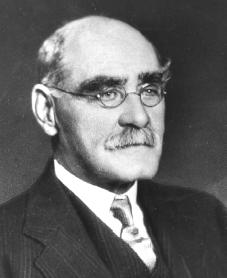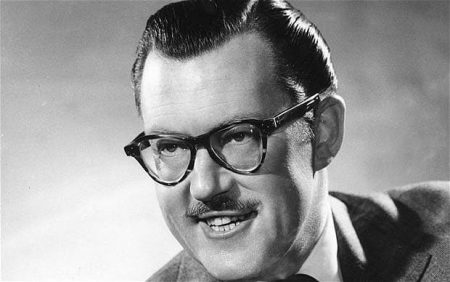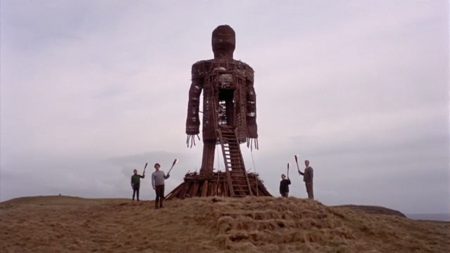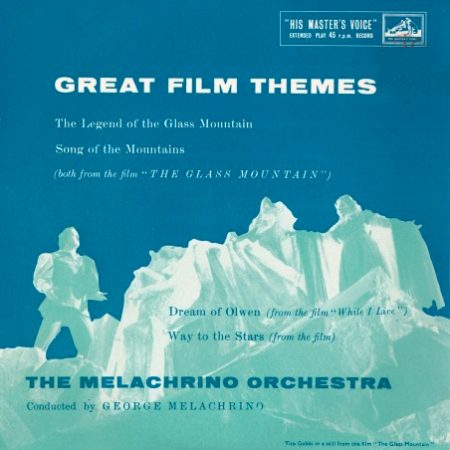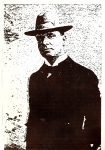Along with Blenkinsop and De Groot, Pabstus was the man who brought rigour to the study of animals’ bones back in the fifties. I wondered what he was doing wandering disconsolately around the garden of a Bewilderment Home, for that is where I assumed I had been plunked. Before I had a chance to ask him, he began to jabber questions at me about the horrible cave. After fifteen or so queries, all of which I answered as best as I could, Pabstus changed tack and asked me why I was dressed as a giant bee. For my part, let me say it had not escaped my notice that the world-famous irredentist was clad in raiment of the utmost gorgeousness.
We seemed to have struck an instant rapport, so we strolled off together towards a nearby pie shop which, Pabstus informed me, he had eaten at every single day for the last thirty years. When we entered the place, I pondered his judgment, for the floor was alive with scurrying beetles, huge black terrible things, and the air was thick with the smell of hamster. Seeing me about to swoon, Pabstus grinned, and I saw that his mouth was packed with fangs. There seemed to be too many of them to fit, but my eyes did not deceive me.
“You have an alarming number of teeth, Pabstus,” I observed.
“No more than any other member of my extended family,” he replied, tapping a bell upon the counter to summon the pie shop person. I have had a long and full life, but never before had I heard so dreadful a sound as that bell. I clapped my hands over my ears and began to weep like an oversensitive orphan child. Pabstus saw my discomfort and bared his fangs at me again. The hideous Beelzebubesque bell-pealing faded, but only once the sound had died completely did the proprietor appear. I had expected some sort of jolly figure like Mister Dough The Baker from a deck of Happy Families playing cards, but the pie shop person looked and acted more like a fop of the Regency period. He even wore gloves scented with lavender. With a rakish twinkle in his eye, he greeted us, and somehow made the words “Good afternoon, would you like to buy some pies?” sound lascivious.
“Yes we would!” shouted Pabstus at top volume, “For myself, I want to buy one of your big crinkle-pastry dumpling and endive and chicory pies, and two small mustard balls. My colleague here will have…” and he trailed off, inviting me to complete our request. Not having been to this pie shop before, I had no idea what I should choose, and there seemed to be no menu visible. But I sensed inexplicable danger, and wanted to get out of here as soon as I could.“I’ll have the same,” I announced, weakly.
“That won’t be possible I’m afraid,” said the pie-fop, “As you must surely know, today is Saint Eustace’s Day.”
I did not have the energy to argue. Perhaps that blow on the head which found me slumped in an unfamiliar armchair and suffering from amnesia had taken more of a toll than I thought. I pointed to two celery pies on a shelf behind the counter and asked for them. The proprietor preened his locks with macassar oil, and said, “Those pies are for rental only.”
Beetles were now climbing up the legs of my borrowed bee-like boiler suit. I could stand no more of this. I turned and left the pie shop, slamming the door behind me. I decided that I would rather go hungry than allow myself to fall under Pabstus’ spell. It was a decision I would learn to regret.
Assuming the limping irredentist would pursue me as soon as he had got his hands on his pies, I flung myself into a ditch and covered myself with a flag that happened to be lying about. I was surprised that the flag had been abandoned, for it looked as if it had been stitched only recently, and there was still a needle attached to a dangling piece of thread. I accidentally prodded myself with the needle, in the general area of my right collarbone, and had to stifle a yelp in case Pabstus was already on my trail.
Crouched under a flag in a ditch in the early afternoon, I turned my thoughts once more to the horrible cave, and to the crows that nested therein. It was a long, long time since I had been perturbed by birds, so long ago that I had difficulty remembering much about the days when my parents’ toffee shop had been attacked by flocks of mutant sparrows and wagtails. But the malevolence of the crows I had seen near the horrible cave was unprecedented. Tippi Hedren had an easy time of it by comparison, I reflected ruefully, for I am given to rueful reflection, especially when I can feel silage seeping into my boots, as I could now. Could I risk standing up? I knew that if I maintained my crouch for much longer I would suffer from agonising cramps, and I had left my cramp medication in the breast pocket of my pyjama jacket, back at the nursing home or whatever it was. I wondered if I could flee from the ditch and make it to the building without being waylaid by Pabstus. All of a sudden that stuffy lounge with its creaking armchair, and Primrose the nurse with her mashed potatoes, even the rake-thin ghoul, seemed more attractive than this stinking ditch.
Crawling out from under the flag, I peered over the lip of the ditch to check that Pabstus was no longer in the vicinity. He was not. Perhaps he had taken his pies and was sitting on a park bench, masticating them with those fangs of his, swallowing every last crumb. I clambered up and was about to stalk off towards the mercy home when I thought the flag might come in handy, so I stooped to pick it out of the ditch. It was heavier than I thought, but eventually I had it wrapped around me. As I turned to go, I saw that now my way was blocked by thousands of cows, all of them gazing at me intently, as if I were something they might want to chew up and digest. Were they cows, or were they super-intelligent beings from a planet in a distant galaxy who looked like earth-cows? Within the next few minutes, I would learn the truth, a truth far more incredible than my puny brain could comprehend.


